Abstract
Guinea pigs immunized with intact or disrupted armadillo-grown human Mycobacterium leprae administered in aqueous or oil vehicles were tested with various dilutions of M. leprae suspended in saline, water-soluble M. leprae extract, purified protein derivative, and a water-soluble extract of normal armadillo tissue. The results demonstrated the following. (i) Under no conditions was any skin test reactivity found to normal armadillo tissue extract. (ii) Positive sensitization to both M. leprae and its water-soluble extract was achieved by sensitizing guinea pigs with M. leprae suspended in Hanks solution or saline. Autoclaved M. leprae in Hanks solution or saline inoculated intradermally was an effective immunogen. Oil suspensions or emulsions were effective at sensitization, but appeared to be no better and, in general, slightly weaker, than simple inoculation in aqueous suspension. (iii) Living BCG failed to reveal a significant adjuvant effect on sensitization to M. leprae. However, cord factor appeared to potentiate slightly the sensitization to M. leprae in aqueous suspension. (iv) The minimum dose required for sensitization with M. leprae in aqueous suspension was 55 micrograms of purified bacilli. (v) Animals inoculated with M. leprae in saline or with M. leprae together with BCG showed positive skin test reactivity to the first skin test application made fully 1 year after the initial sensitization. The efficacy of autoclaved, irradiated M. leprae in aqueous, oil-free medium suggests a relatively safe approach to human vaccination studies.
Full text
PDF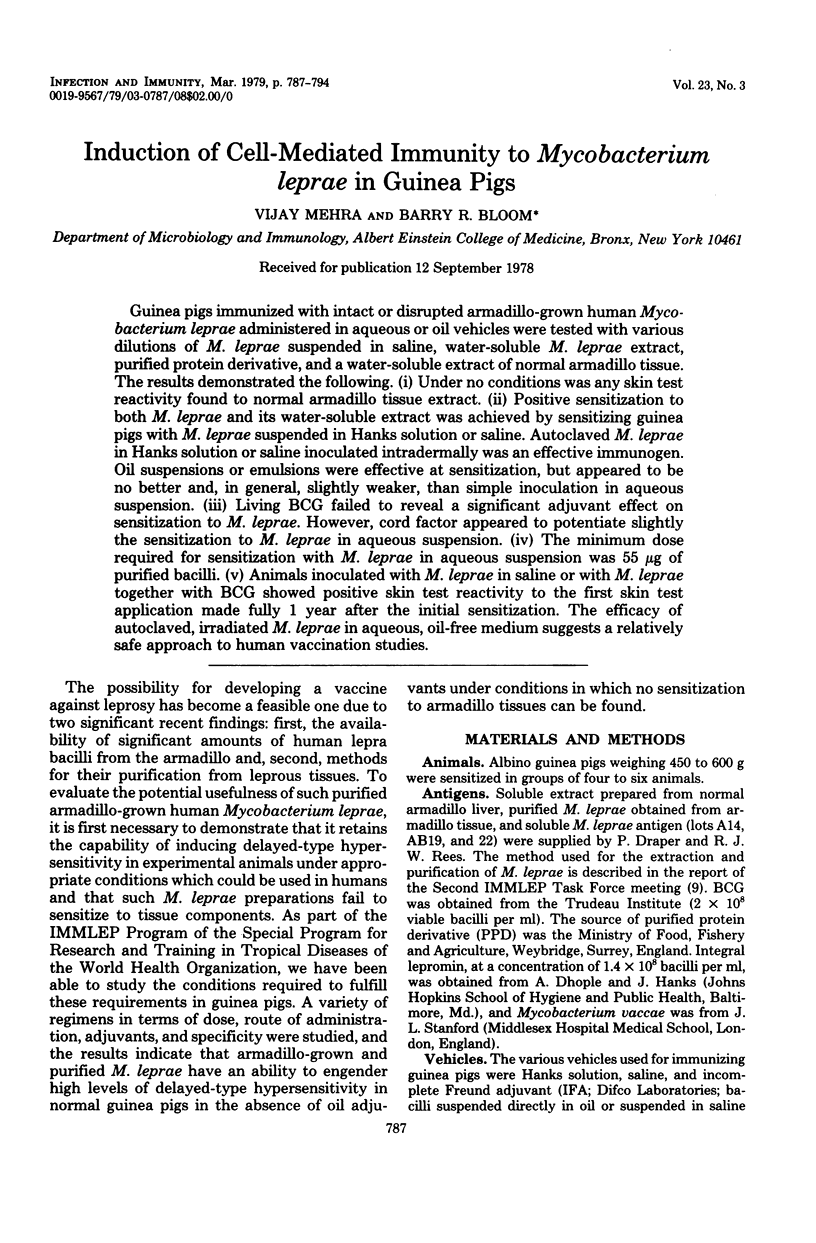
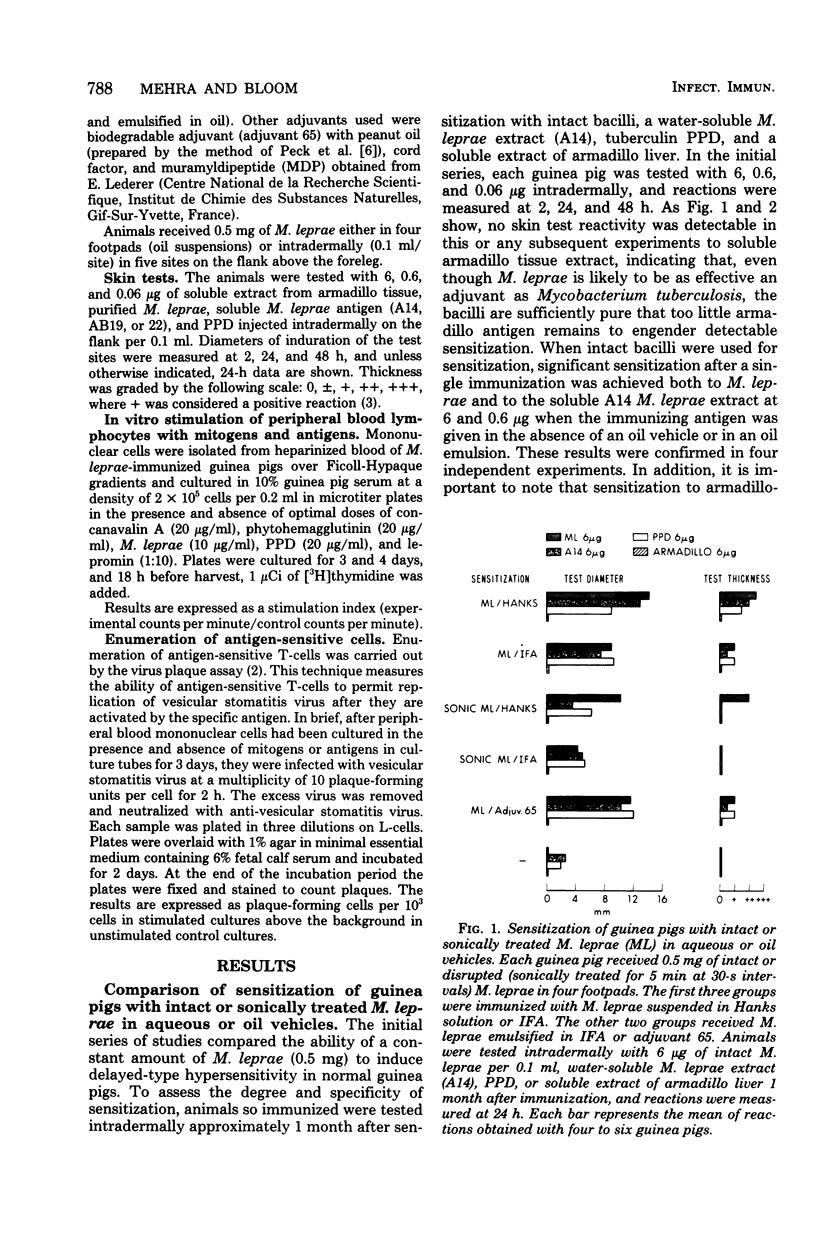
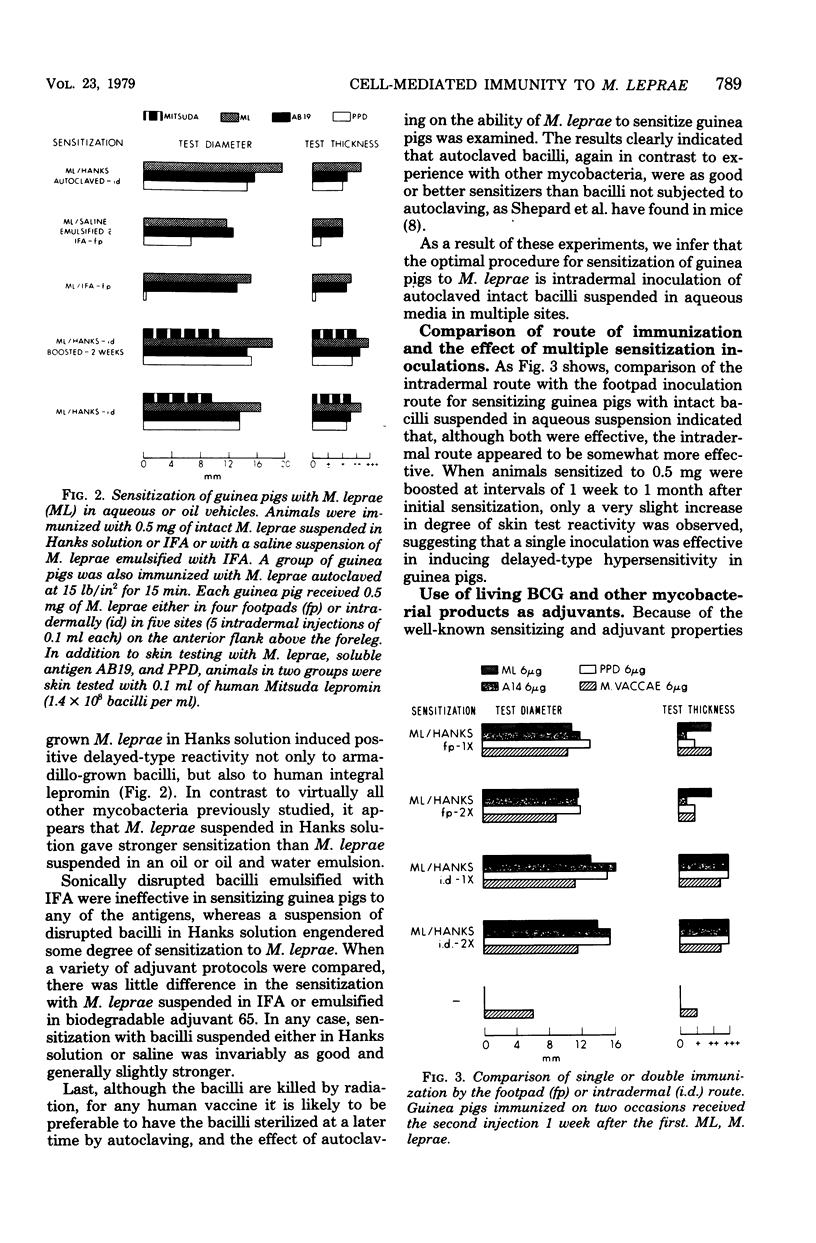
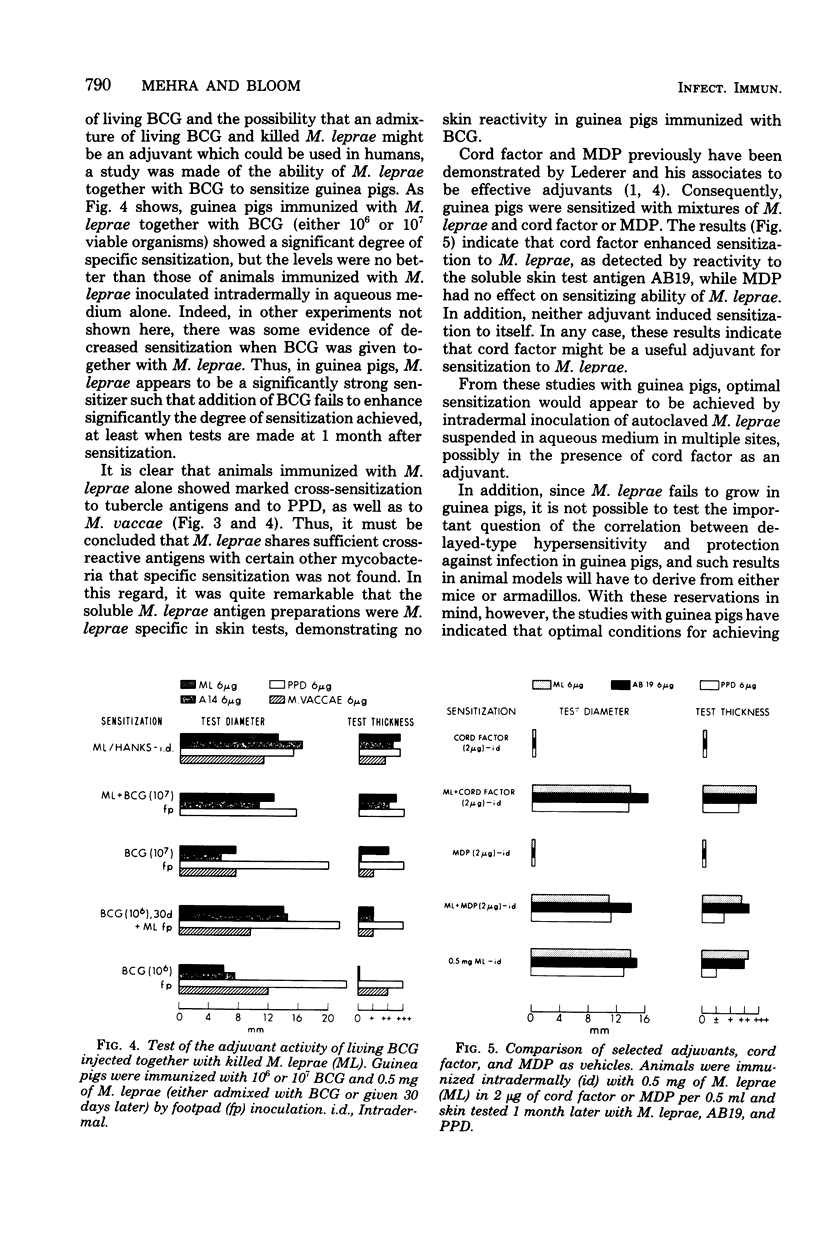
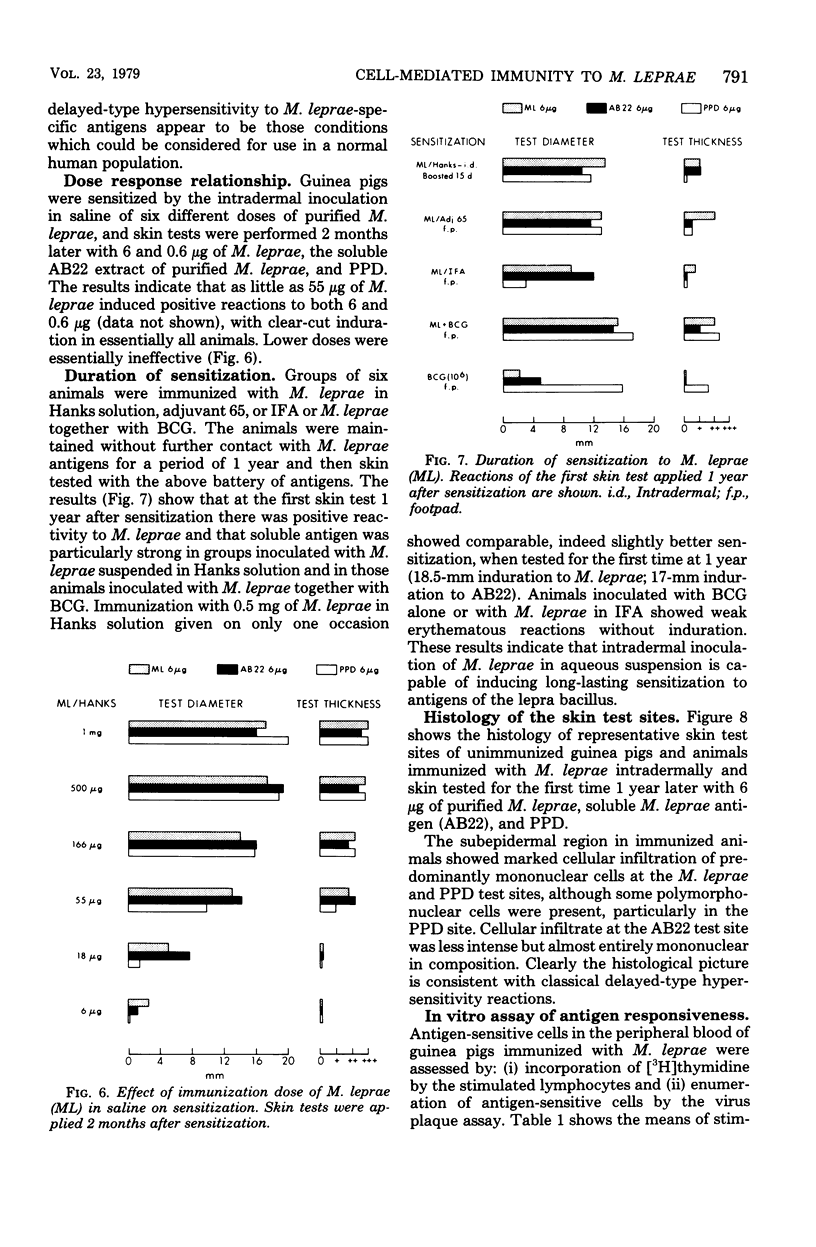
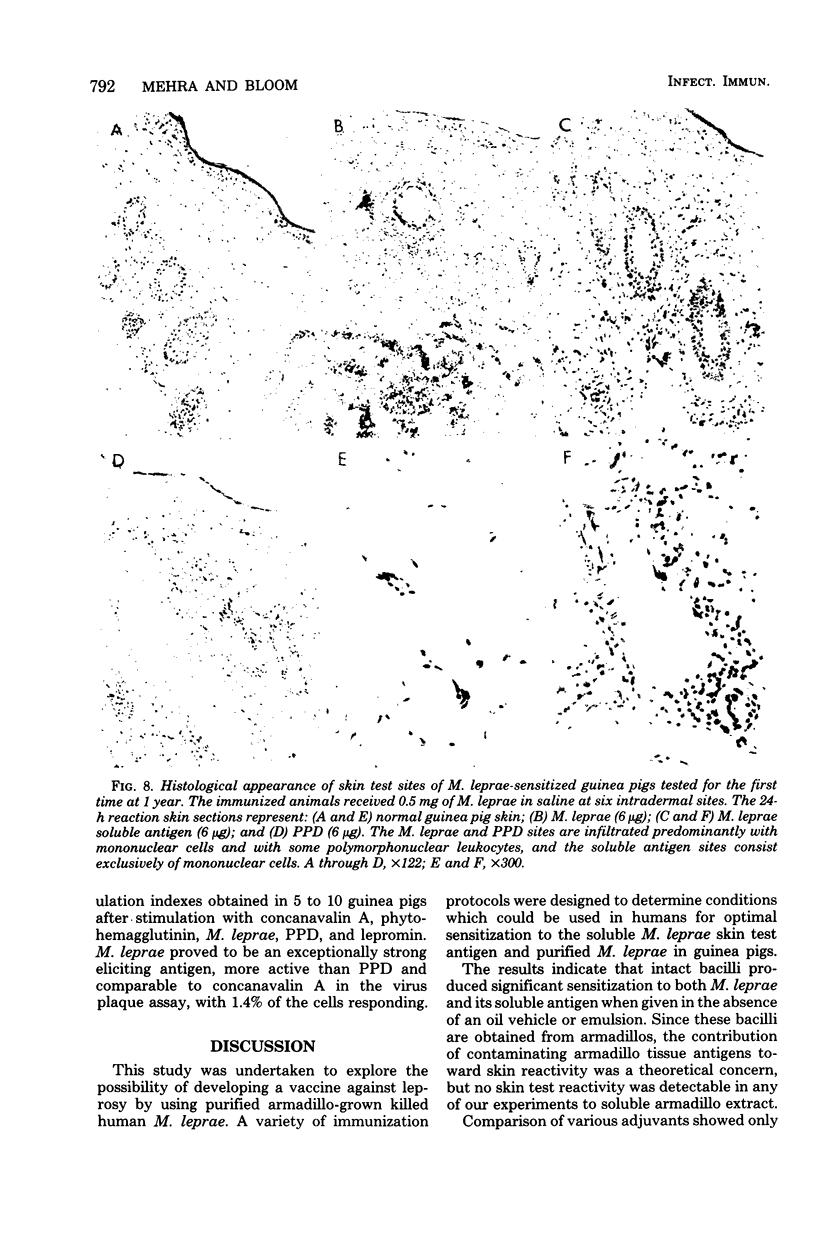
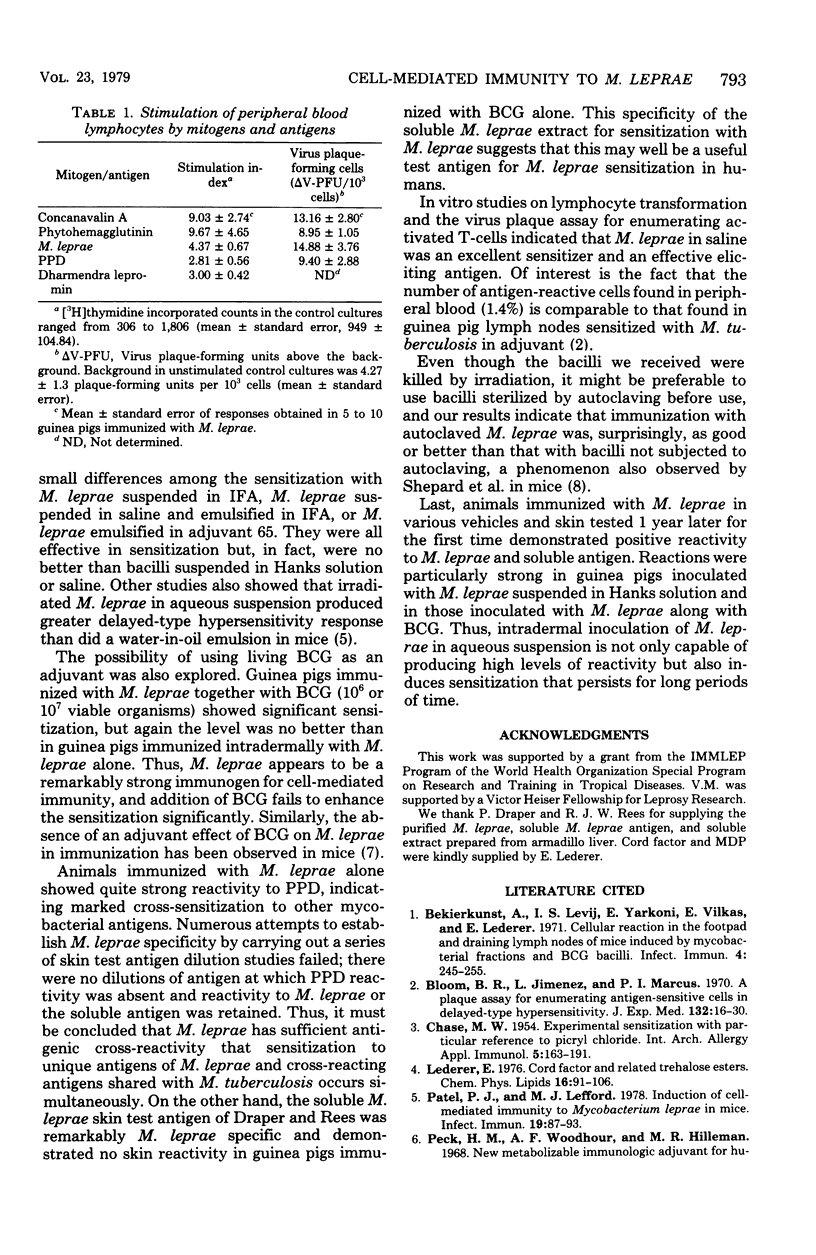
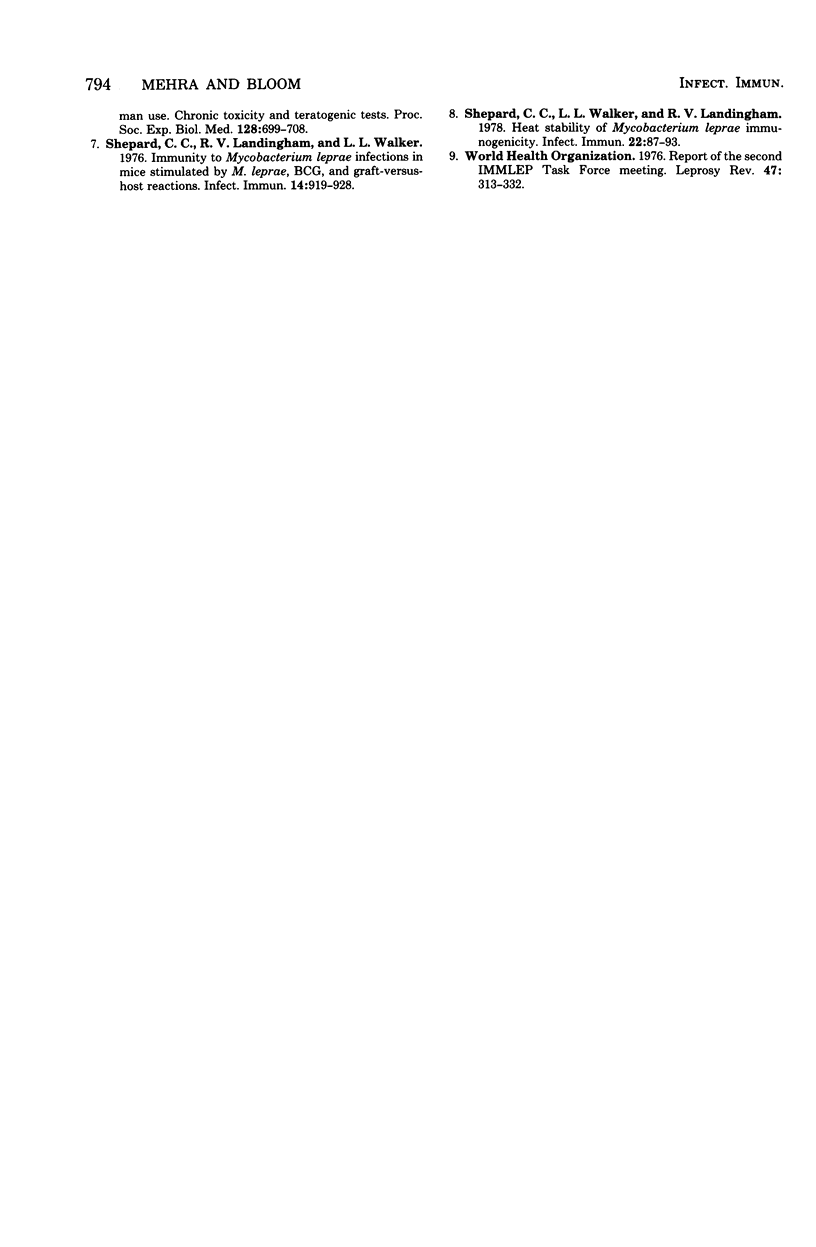
Images in this article
Selected References
These references are in PubMed. This may not be the complete list of references from this article.
- Bekierkunst A., Levij I. S., Yarkoni E., Vilkas E., Lederer E. Cellular reaction in the footpad and draining lymph nodes of mice induced by mycobacterial fractions and BCG bacilli. Infect Immun. 1971 Sep;4(3):245–255. doi: 10.1128/iai.4.3.245-255.1971. [DOI] [PMC free article] [PubMed] [Google Scholar]
- Bloom B. R., Jimenez L., Marcus P. I. A plaque assay for enumerating antigen-sensitive cells in delayed-type hypersensitivity. J Exp Med. 1970 Jul 1;132(1):16–30. doi: 10.1084/jem.132.1.16. [DOI] [PMC free article] [PubMed] [Google Scholar]
- CHASE M. W. Experimental sensitization with particular reference to picryl chloride. Int Arch Allergy Appl Immunol. 1954;5(2):163–191. doi: 10.1159/000228095. [DOI] [PubMed] [Google Scholar]
- Lederer E. Cord factor and related trehalose esters. Chem Phys Lipids. 1976 Mar;16(2):91–106. doi: 10.1016/0009-3084(76)90001-3. [DOI] [PubMed] [Google Scholar]
- Patel P. J., Lefford M. J. Induction of cell-mediated immunity to Mycobacterium leprae in mice. Infect Immun. 1978 Jan;19(1):87–93. doi: 10.1128/iai.19.1.87-93.1978. [DOI] [PMC free article] [PubMed] [Google Scholar]
- Shepard C. C., Van Landingham R., Walker L. L. Immunity to Mycobacterium leprae infections in mice stimulated by M. leprae, BCG, and graft-versus-host reactions. Infect Immun. 1976 Oct;14(4):919–928. doi: 10.1128/iai.14.4.919-928.1976. [DOI] [PMC free article] [PubMed] [Google Scholar]
- Shepard C. C., Walker L. L., van Landingham R. Heat stability of Mycobacterium leprae immunogenicity. Infect Immun. 1978 Oct;22(1):87–93. doi: 10.1128/iai.22.1.87-93.1978. [DOI] [PMC free article] [PubMed] [Google Scholar]



